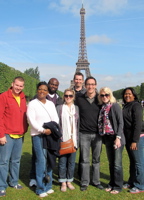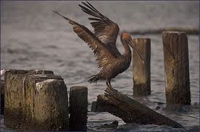The UALR Institute on Race and Ethnicity will present “Meet the Author” at 4:30 p.m. Tuesday, Sept. 30, in Engel Alumni Hall at the Bailey Alumni and Friends Center featuring University of Arkansas at Little Rock professor emeritus of Speech Communication, Dr. Allan Ward. Continue reading “‘Meet the Author’ event to feature professor involved in civil rights”
Perhaps it’s not unusual for a college student to dream of pouring his heart into writing the proverbial all-American novel. But it isn’t too often he actually completes that novel and then finds a “novel” way to financially propel it to publication, let alone handle its marketing and distribution costs. Continue reading “Student uses crowdfunding website to generate backers for first novel”
The University of Arkansas at Little Rock Department of Digital Strategy recently welcomed its newest staff member, Derrick Koon, who will serve as web developer and designer for the university. Continue reading “Department of Digital Strategy welcomes newest staff member”
Five faculty member courses have been recognized for their promotion of online education and student learning and are the recipients of the Quality Matters (QM) recognition for their online courses.
Continue reading “Online Courses Receive National Recognition”
Karen Goodhart Flake, a 1987 graduate of UALR’s master’s program in interpersonal and organizational communications, has been appointed as president and chief executive officer for Mount St. Mary Academy for girls.
Tonya Oaks Smith, director of communications at the UALR William H. Bowen School of Law, delivered a presentation on communicating during a crisis, “We’re Going to Need a Bigger Boat,” to a standing room only crowd at Penn State University June 12.
“Every morning, I wake up to electric purple and red sunrises which flash the mountains blue and gold all around us, and stubby trees with thick, rounded leaves twice as large as my head… Here, the people are so friendly that not knowing Chinese is no big deal at all. Sure, you’ll occasionally think you’re ordering chicken and get handed a green milkshake, but mm, it’s delicious.” -Jessica Fawley, studying in Taiwan.
Read student insights about studying abroad on the Horizons blog.
Ready to pack your bags? Sign up for info

Thursday, Sept. 15, is the deadline for students to apply for Spring 2012 study abroad opportunities, said Aimee Jones, coordinator of UALR’s Programs Abroad.
A panel discussion that asks “Is Islam a Threat?” will be held from noon to 1:30 p.m. Wednesday, Nov. 17, in the Leadership Lounge in the Donaghey Student Center as this week’s International Celebration Week concludes.
Continue reading “Int’l Celebration Week Finishes with Panel, Dinner”
UALR celebrates an International Celebration Week filled with music, food, education, and fun designed to increase awareness of national cultures and ways to improve interactions.
Continue reading “Int’l Week Offers Food, Fun, Understanding”
UALR Professor Robert R. Ulmer literally wrote the book on how to communicate in a crisis — “Effective Crisis Communication: Moving from Crisis to Opportunity.” His second edition is coming out in November.
So no wonder that when the largest and longest lasting environmental disaster in the history of the United States erupted this summer, directors of the Unified Command responding to the BP oil gusher came calling on Ulmer, chair of the Department of Speech Communication in the College of Professional Studies.
“I got a call one Saturday from the Unified Command about 20 days into the event,” Ulmer said of the sinking of the Deep Water Horizon drilling rig and collapse of the blowout preventer on the BP well five miles underneath the surface of the Gulf of Mexico. “They were interested in the risk and crisis communication theory research I’ve been doing, particularly on renewal.”
His research on renewal shows how organizations that respond ethically, openly, and with transparency to a crisis eventually can grow and prosper. It all depends on how the organization communicates through the crisis, developing ethical and open communication strategies, learning from the event, and developing a prospective vision for moving forward.
“The next day, they called me back and asked if I would come to Houma, La. (where much of the Gulf rescue and recovery effort was located) and work,” Ulmer said. The Houma operation was part of the overall response effort — the Unified Area Command — headed by Ret. Coast Guard Admiral Thad Allen.
A preeminent authority in the field of crisis communication, Ulmer is author of five books and more than 40 articles integral to the study of communication in response to disaster, whether it is man-made or natural.
For almost 15 years, the Canadian-born Ulmer has been a recognized expert in the field of crisis communication, working to calm the waves created by an emergency. He was one of the first to focus research on finding positive results from a disruptive wave of crisis. This counter-intuitive approach is now used throughout the business and health communities as a way to communicate crisis-driven information effectively.
Throughout the summer, Ulmer worked on crisis communication strategies for the command, developing communication plans, and advising on messages about public health and potential risks with the clean up effort. He attended community sessions to listen to the concerns of the public and assessed how the messages were being received.
“People think communication is nothing more than talking, but most of it is about listening and making sure you are answering people’s important questions and meeting their information needs,” Ulmer said.
Communicators need to be aware of their audience. During the BP disaster, engineers, scientists, marine biologists, and other experts understood the chemistry of the situation. But that doesn’t mean the shrimper on the dock or the shop owners in the affected small towns understood.
“There is no substitute for providing the best possible information to people to help them protect themselves during the event,” he said. “You have to tell them what you know, you have to tell them what you don’t know, and you have to tell them what you are going to do to find out.”
 Following the event, Ulmer was assisted by Andrew Pyle, a UALR graduate student from Mountain Home, who was able to fly to Houma to see the Unified Command in operation and collect data. Since then, Pyle has interviewed the public information officers from the joint information center involved in the crisis, and is developing a thesis based upon the “lessons learned” from the disaster and the response to it.
Following the event, Ulmer was assisted by Andrew Pyle, a UALR graduate student from Mountain Home, who was able to fly to Houma to see the Unified Command in operation and collect data. Since then, Pyle has interviewed the public information officers from the joint information center involved in the crisis, and is developing a thesis based upon the “lessons learned” from the disaster and the response to it.
“The people at BP, the Coast Guard, and all the other agencies are very excited about the prospect of the study,” Ulmer said. “This is an unprecedented research opportunity.”
Not only was the BP disaster the largest in American history, it was the longest lasting. The Exxon Valdez oil spill in Alaska in 1989 involved thousands of responders. At the height of the BP response, 25,000 to 35,000 people were under the command of Admiral Allen.
Ulmer said Pyle’s research will be defended in December and he anticipated publication to follow.
The crisis communicator is now engaged in another project with the federal government — this time Homeland Security on issues of national safety, risk, and crisis communication following large-scale crisis events.
“How do you build resilience into communities; how do you prepare and communicate and respond to low-probability, high consequence events,” Ulmer said. “People from Israel, Northern Ireland, and all over the world who regularly deal with large scale complex crises were at a recent event talking about how to respond effectively. We need to learn from them.”
One thing about crises, Ulmer said, is that every organization will have them. And the time to prepare for them is now by operating day-to-day in an open, transparent, and responsible way.
“Organizations that are open and honest before and during a crisis are better prepared to produce those values following the event,” he said.
